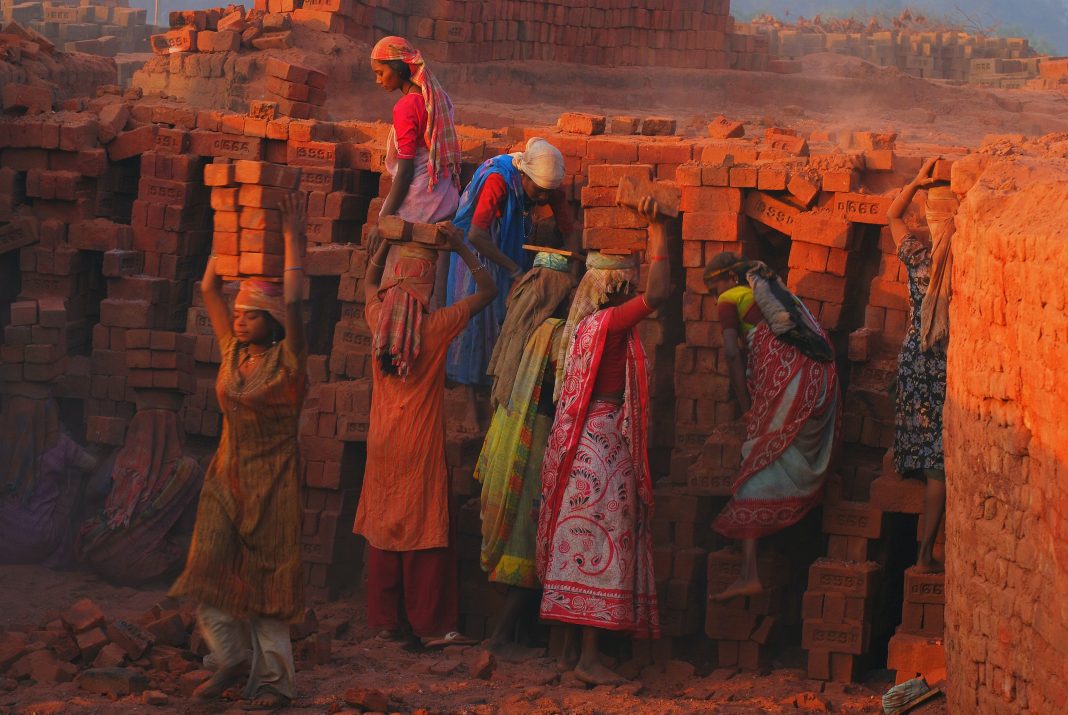India is the fastest growing Economy in the world with a projected growth of 6 per cent in the 2020-21 fiscal year. Yet, India has not been able to protect the rights of the people working for the betterment of its Economy. In fact, India ranks among the 10 worst Countries for the working class. The International Trade Union Confederation (ITUC) Global Rights Index ranks 144 countries on the basis of respect for workers’ rights. India has been included to the existing list through its Seventh Edition.
“These threats to workers, our economies and democracy were endemic in workplaces and countries before the COVID-19 pandemic disrupted lives and livelihoods.”
-Sharon Burrow, ITUC SECRETARY GENERAL
India had first appeared in the list in 2016. Notably, India’s repressive labour legislation has been one of the main reasons for its reappearance in the list. As a matter of fact, the other countries among the worst ten include, Bangladesh, Brazil, Colombia, Egypt, Honduras, Kazakhstan, the Philippines, Turkey and Zimbabwe.
Instances of Dissent
Companies in India that have violated workers’ rights include Pricol, and Telangana State Road Transport Corporation. On the rating scale, India has been rated 5. Thus, implying that the basic rights are not guaranteed to the working class.
For instance, the police arrested over two hundred workers on September 24, 2019 for protesting. To explain, the workers had staged a rally in front of the Deputy Labour Commissioner (DLC) office in Irunkatukotai, Chennai. They demanded recognition of their newly formed trade union. These workers were from Motherson Automotive Technologies & Engineering (MATE), located at Sriperumbudur, an industrial hub 40 kilometres from Chennai.
In another case, workers were handed over transfer orders in response to mass protests opposing illegal dismissals. These workers were from Pricol, the automotive components manufacturer based in Coimbatore, Tamil Nadu. The Company also asserted that the strikes caused severe losses to the company. That as a result of this, the workers were about to be dismissed. Thus, the management stated that the transfer orders were handed over to save their jobs.
Meanwhile, the protesting workers from Tamil Nadu Electricity Generation and Distribution Corporation (TANGEDCO) are demanding:
- fixation of minimum wages for contract workers;
- appointing contract workers in around 43,000 existing vacancies;
- disbursal of bonus to contract workers on par with regular employees; and
- a roll-back of the steep hike in charges for new electricity connections.
There are various other instances that show how the working class in India struggles. While also being punished for exercising their Right to Freedom of Speech and Expression.
India’s Falling Standards
To explain, the Report that ranks India as one of the worst countries for the work force takes into purview three factors:
- Mass Dismissals
- Brutal Repression of Strikes
- Regressive Laws
Indeed, the major reason behind the inclusion of India has been disproportionate violence by the administrative authorities against workers protesting for basic rights. The report has also cited the instances mentioned above.
Labour reforms are now a long lost promise made by the PM as long as 6 years ago i.e. in the year 2014. Following the majority the Government recieved in the year 2019, they are now back on the agenda of discussion of the Government. There is a dire need for comprehensive labour reforms. In essence, with an emphasis on the implementation of employment schemes like MGNREGA, etc.
The Road Ahead
The COVID-19 Pandemic has worsened the situation of the workers with an increase of 20 percent in unemployment in the Country. According to the Centre for Monitoring Indian Economy, 30 million people aged between 20-30 years have lost their jobs due to the Coronavirus.
What India needs is a comprehensive policy for the whole Nation that codifies the procedure for the creation of more jobs. Another concern is the deprivation of social security benefits, due to a large portion of the population being employed on a contractual basis.
Whereas, disguised unemployment remains one of the biggest contributing factors. Due to a high level of disguised unemployment, the labour class in India works far below their potential for grossly meagre wages.
Moreover, increased transparency between the Government and the working class is a must. They must be aware of the intent of the Government while amending the existing rigid labour laws or while introducing a whole new reform applicable on the national level.

